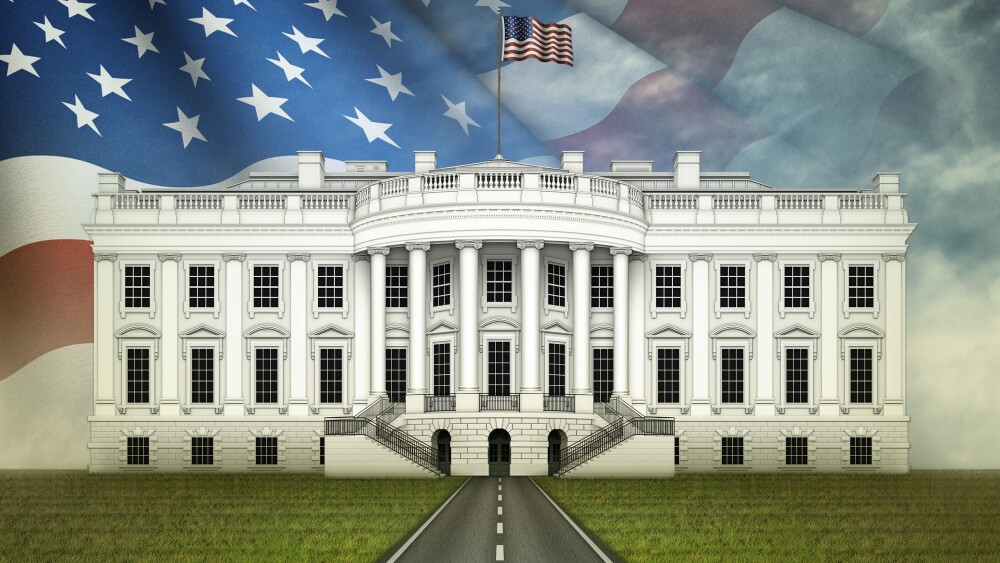Reporting third quarter earnings on Tuesday, Johnson & Johnson CEO Joaquin Duato said the healthcare giant has not yet secured a drug pricing deal with the White House, but discussions are ongoing.
Johnson & Johnson has not yet secured a drug pricing plan with the White House, as the healthcare giant’s peers Pfizer and AstraZeneca have. CEO Joaquin Duato told analysts that discussions are ongoing to find “common ground” on the issue that has dogged the pharmaceutical industry since President Donald Trump took power in January.
Speaking on the company’s third quarter earnings call Tuesday, Duato said discussions are ongoing and have been “since day one, even before day one.” The CEO was responding to an analyst question about whether J&J has secured a Most Favored Nation drug pricing deal. Pfizer and AstraZeneca in recent weeks have announced collaborations with the administration from the White House, which have, in turn, given them a reprieve from the president’s threatened pharmaceutical tariffs.
“As far as the discussions those are ongoing, I don’t have anything to share today, but I am optimistic that we are going to land in a place which is going to create common ground between the administration and ourselves,” Duato said.
Still, J&J was one of the first pharmas to announce a major investment in the U.S. Duato noted that $55 billion manufacturing investment and continued efforts to provide middle class jobs in the country. With that major investment, Duato said all of J&J’s advanced medicines that are used in the U.S. will be manufactured there.
Still, investors have been eager to hear about each pharma’s plans heading into the earnings reporting period. With J&J up first as is tradition, analysts expected Duato and crew to face questioning on challenging policy points like tariffs and Most Favored Nation drug pricing.
Proving Them Wrong
What Duato really wanted to talk about, however, was his company’s innovative medicines. J&J has for many quarters been dodging queries about how it would overcome a pending loss of exclusivity for Stelara, long a best-seller. The inflammatory disease drug brought in $10.4 billion in 2024, a 4.6% decline. But J&J positioned Darzalex, indicated for multiple myeloma, as its blockbuster successor.
For the third quarter, Darzalex was J&J’s best-selling drug, bringing in $3.7 billion worldwide—a nearly 22% increase over the same period a year prior.
“Some were not convinced we could grow through the loss of exclusivity, but we were confident, and we have now unequivocally answered that question,” Duato said. “How did we accomplish that when other companies have failed?” He went on to highlight Darzalex and other brands like Carvykti, Caplyta, Spravato and more.
The pharmaceuticals segment produced $15.6 billion for the quarter, compared to $14.6 billion for the same period a year before. Spravato in particular outperformed, with worldwide sales of $459 million—more than 60% growth in the quarter year over year.
J&J also got to count Caplyta this quarter, the schizophrenia and bipolar disorder medicine acquired via the $14.6 billion takeover of Intra-Cellular Therapies earlier this year. The drug clocked $240 million in worldwide sales.
“The success of our portfolio pipeline is proof that our relentless focus on innovation is doing more than fueling progress. It is accelerating,” Duato said.
Guggenheim noted that the immunology portfolio was particularly strong, while antipsychotic Invega and prostate cancer med Erleada were “notably light.”
Elsewhere, J&J announced the spin out of its orthopedics unit, which is within the medtech business. The process will take about 18 to 24 months and eventually establish DePuy Synthes as a standalone company in 2027. William Blair said this standalone company will be the largest and more comprehensive orthopedics-focused company. The unit, which includes knee, hip, spine and trauma products, generated about $9.2 billion in sales in 2024.
Guggenheim viewed the spin out as a positive in a Tuesday morning note: “We expect investors to be pleased with that decision, as it allows JNJ to continue its trend of moving away from slower growth areas of MedTech, while focusing on higher areas such as Cardiovascular.”






